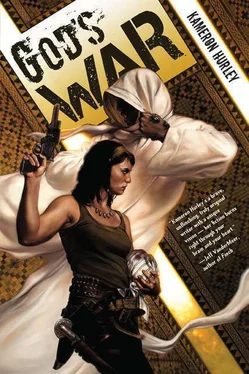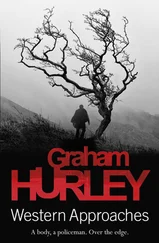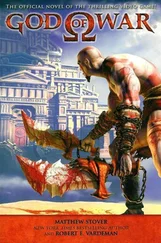They turned off the paved track and onto the Queen Zubair Highway that bisected Nasheen from the Chenjan border to the sea. The road signs were popular shooting targets for Chenjan operatives and Nasheenian youth. Most of the metal markers were pocked with bullet holes and smeared in burst residue. A careful eye could spot the shimmering casings of unexploded bursts lining the highway.
If dropping the womb kept Raine and Nyx’s sisters busy long enough trying to track it down so they could tag and bag it, she could collect her note, call in some favors from the magicians, and maybe find a way to clear up this whole fucking mess.
Maybe.
A three-hundred-year-old water purifying plant marked the edge of the old Faleenian city limits. The city itself had lapped at the organic filter surrounding the plant for half a century before a group of Chenjan terrorists set off a sticky burst that ate up flesh and metal, scouring the eastern quarter of the city and leaving the plant on the edge of a wasteland. The government had rebuilt the road and the plant, but the detritus of the eastern quarter remained a twisted ruin. Chenjan asylum seekers, draft dodgers, and foreign women had turned the devastated quarter into a refugee camp. A colorful stir of humanity wove through the ruins now, hawking avocados and mayflies and baskets of yellow roaches. Nyx caught the spicy stink of spent fire beetles and burning glow worms.
As the dusty ridges of the refugee camps turned into the walled yards and high-rises of what passed for the Faleenian suburbs, the massive ship from New Kinaan came into view, rearing above the old gated city center of Faleen like some obscene winged minaret.
Faleen was a port city, the kind that took in the ragged handfuls of off-world ships that sputtered into its archaic docking bay every year looking for repairs, supplies, and usually—directions. Faleen wasn’t the sort of place anybody off-world came to on purpose. Most of the ships that rocketed past Umayma were so alien in their level of technology that they couldn’t have put into the old port if they wanted to. The port design hadn’t changed much since the beginning of the world, and most everybody on Umayma wanted to keep it that way.
They drove past women and girls walking along the highway carrying baskets on their heads and huge nets over their shoulders. Bugs were popular trade with the magicians in Faleen. Professional creepers caught up to three kilos a day—striped chafers, locusts, tumblebugs, spider wasps, dragonflies, pselaphid beetles, fungus weevils—and headed to the magicians’ gym to trade them in for opium, new kidneys, good lungs, maybe a scraping or two to take off the cancers.
Kine pulled up outside the towering main gate of the dusty city, scattering young girls, sand, and scaly chickens from her path with a blast of her horn. Another cloud of beetles escaped from the leak in the back and bloomed around the bakkie. Nyx batted away the bugs and jumped out.
She took one long look at the main gate, then swung back to look at Kine. She half opened her mouth to ask.
“I’m not giving you any money,” Kine said.
Nyx grimaced.
“Go with God!” Kine yelled after her.
Nyx raised a hand. She’d left God in Chenja.
Kine shifted pedals and turned back onto the highway, heading for the interior.
Nyx turned toward the two giant slabs of organic matting that were the main gates into Faleen. Rumor had it they’d seen better days as compression doors on some star carrier the First Families rode down on from the moons.
Nyx pulled up the hood of her burnous and bled into the traffic heading through the gate. She passed the broken tower of a minaret and walked through narrow alleys between mud-brick buildings whose precipitous lean threatened a swift death. She didn’t much like the stink and crowd of cities, but you could lose yourself in a city a lot more easily than you could out in farming communities like Mushirah. She had run to the desert and the cities for the anonymity. And to die for God.
None of that had worked out very well.
Bashir’s cantina was at the edge of the Chenjan quarter, and the ass end of it served as the public entrance to the magicians’ gym and fighting ring. Bashir made a pretty penny on fight nights when all of Faleen’s starving tailors, tax clerks, bug merchants, and renegade printers crowded in through the bar to watch the fight. The ones who couldn’t get into the main fighting area contented themselves with drinking cheap rice wine and whiskey, listening to the steady slap-slap of gloved fists meeting flesh and the damp thumping of sweaty bodies hitting the mat.
Bashir also made a little money on the side as a black work broker.
Two tall women with shoulders as wide as the doorway stopped Nyx at the cantina stoop.
“You have an appointment?” one of them asked. “It’s private business only until we open for tonight’s fight.”
“Do I look like I have an appointment?”
“Who the fuck are you?”
“Tell her I’m the bel dame.”
The women shifted on their feet. “I’ll get her,” the biggest one said.
There was a time when Nyx had enjoyed throwing that title around on a job. “Yeah, I’m a bel dame,” and “bel dames—like me .” These days the whole dance just made her tired. She’d cut off a lot of boys’ heads over the last three years. Draft dodgers, mostly, and deserters like this Arran kid who came back into Nasheen still contaminated with shit from the front.
Nyx pushed at her sore belly and rocked back on her heels. She wondered if Bashir sold morphine before noon.
The bouncer came back and said, “She’ll see you.”
Nyx ducked after her into the dark, smoky interior of the cantina. Dust clotted the air, and bug-laced sand covered most of the floor. It was good for soaking up blood and piss.
Bashir sat at a corner table smoking sweet opium. Nyx could taste it. The smell made her nauseous. Bashir had two bottles of sand-colored whiskey at the table, and someone had left behind a still-smoking cigar that smelled more like marijuana than sen. Bashir had two teenage boys beside her, both just shy of draft age, maybe fifteen. They were sallow and soft-looking and kept their hair long, braided, and belled. Somebody had kept them out of training. Letting adolescent boys go that soft was illegal in most districts, even if they were prostitutes. They wouldn’t last a day at the front—the Chenjans would mash through them like overripe squash.
“Nyxnissa,” Bashir said. She exhaled a plume of rich smoke. “Thought I’d seen the last of you.”
“Most people think that,” Nyx said, sliding next to one of the boys. He flinched. She outweighed him by at least twenty-five kilos. “Until I show up again.”
“How was your trip?” Bashir asked. She wore red trousers and a stained short coat but kept her head uncovered. Her skin was a shade paler than those who worked in the desert, but the tough, leathery look of her face said her wealth was recently acquired. Like the boys, she was getting fat and soft at the edges, but unlike the boys, she’d fought it out on the sand with the best of them in her youth. There was muscle under the affluence.
“Not as smooth as I hoped,” Nyx said. She pulled off her hood.
Bashir looked her over with a lazy sort of interest. “A bug told me you don’t have what we bargained for.”
“I need a drink,” Nyx said, “and half of what you owe me.” She hailed the woman at the bar, but Bashir waved her woman back.
“The bug says you dropped the purse at the butcher’s.”
“I did,” Nyx said. “It was a high-risk job. You knew that when your agent gave it to me.” She’d been carrying genetic material worth a nice chunk of money in that womb. Bashir wasn’t going to let it go easy, no, but bel dames made good black market runners which made them valuable to people like Bashir—until they got caught. Word got around when you did business with gene pirates.
Читать дальше









![Дж. М Барлог - God of War. Бог войны [Официальная новеллизация] [litres]](/books/413051/dzh-m-barlog-god-of-war-bog-vojny-oficialnaya-no-thumb.webp)


